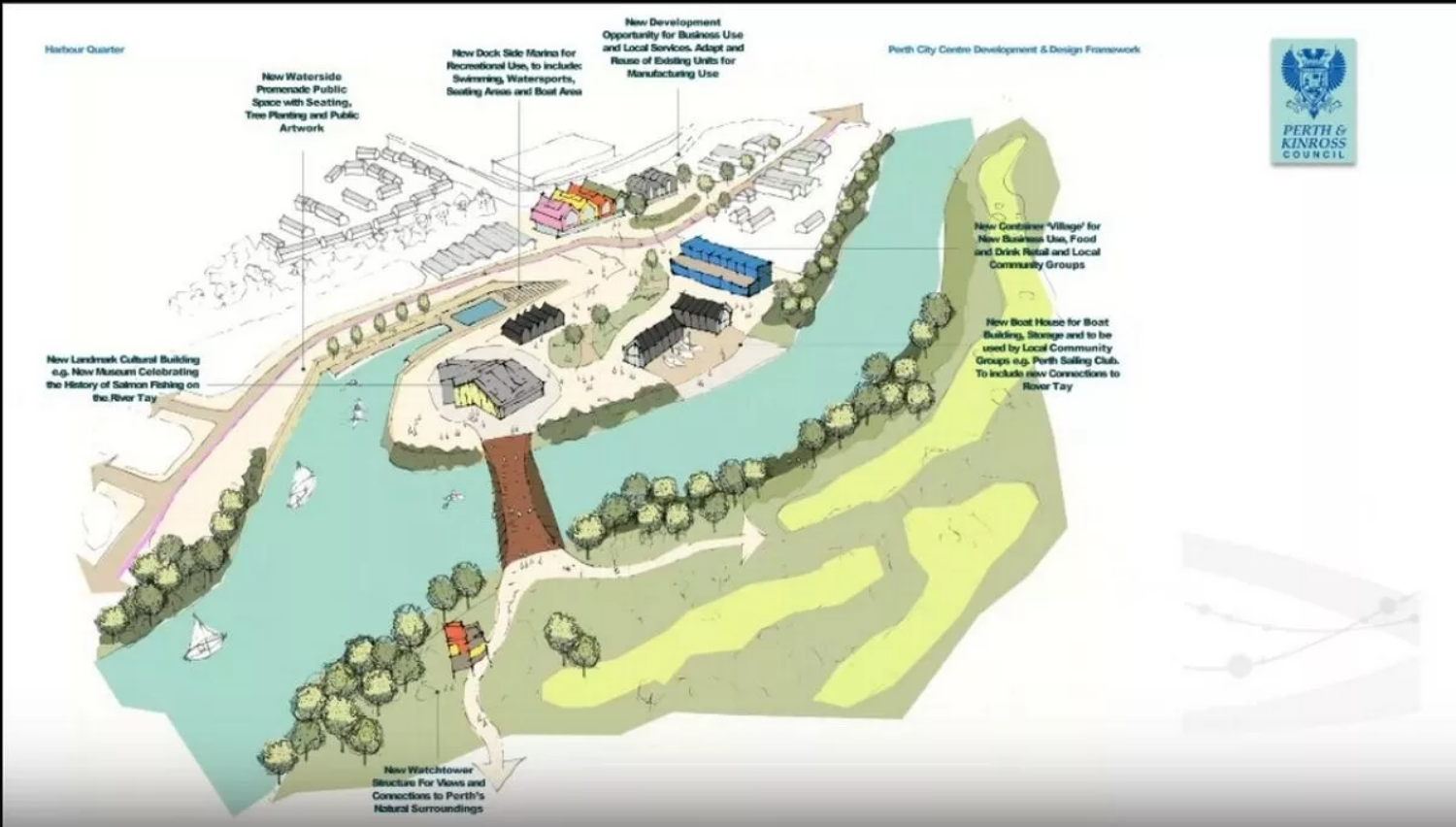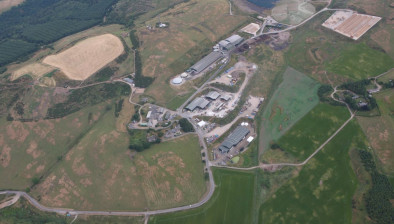Public to be consulted on ‘Five Quarters’ Perth development project

A radical development plan to transform Perth into “one of Europe’s great small cities” is set to be unveiled to the public in the coming months.
Councillors have unanimously agreed to launch a public consultation for the ambitious ‘Five Quarters’ project this autumn, envisioning the city divided into five quadrants which would all see significant development.
The plans include partial demolition of St John’s Shopping Centre, redeveloping Perth Railway and Bus Station to create a transport hub, creating a Harbour Quarter with a new bridge connecting Perth Harbour to Moncreiffe Island and creating a University Quarter.
During the meeting, progress was made on the proposal for the Mill Quarter which will see Thimblerow Car Park redeveloped into Perth’s new leisure centre PH2O.
The Culture Quarter will build on the renovation of Lower City Mills to create a new visitor attraction and commercial space. The bus stances would be relocated, the now vacant toilet block removed and the Lade exposed to create a new linear park.
The Station Quarter has £15 million of funding committed from the Tay Cities Deal for the long-awaited transformation of Perth’s bus and railway station but the council’s strategic lead for Economy, Development and Planning David Littlejohn warned it was “realistically 10 years away”.
Presenting the proposal, Mr Littlejohn said: “Perth Railway Station has one of the largest footprints and longest distances between platforms of any of the Scottish stations.”
The proposed changes which include adding a new civic square and bus interchange, he said would work towards “radically improving first impressions of Perth and the walking route into the city centre”.
As part of the plan, the original Victorian building - designed by Sir William Tite - would be re-exposed to create a new public square in front. The station’s transformation would be done in conjunction with Network Rail who will soon begin track and signal engineering works ahead of electrification which will ultimately reduce the number of platforms.
The Harbour Quarter would create space for water leisure activities, micro and small businesses, and community facilities with a new bridge to Moncreiffe Island.
The University Quarter would be created in conjunction with UHI Perth who councillors were told “have a shared aspiration to make better use of the existing campus for a wider range of learning opportunities and to also relocate some teaching to the city centre, for example creative industries”.
Councillors were also shown a design proposal to partly demolish St John’s Shopping Centre to create a new outdoor area with seating and an area for play which would link to the open space in front of Perth Museum.
Mr Littlejohn said: “Today is the beginning of a process to explore what people would like, what they would like changed and what they would prioritise for funding when it becomes available, whether that be public or private funding. The time to engage is before spades hit the ground.”
Moving the report for approval council leader Grant Laing said: “Over the past 10 years since the first Perth City Plan was published many of the proposals it contained have been delivered by the council in partnership with other organisations and businesses.
“In some cases, the work has been recognised for its innovation - for example the repurposing of the former St John’s Primary as the Perth Creative Exchange which was awarded Regeneration Project of the Year at the Scottish Property Awards.
“And of course, Perth Museum - the home of the Stone of Destiny - has opened to huge acclaim and has been a real hit with residents and visitors alike.
“However, I recognise that Perth is not immune to the economic challenges faced by cities and town across this country and that more needs to be done. Not only now, but for the long term.
“If we are to continue on our journey towards being one of Europe’s great small cities we need to harness the economic potential of our city, our residents and our businesses. This draft City Centre Development and Design Framework builds on existing strategies and plans to set out how we might achieve this by investing in parts of the city centre where we believe there is opportunity, and capitalising on current investment such as Destiny Bridge to allow us to re-imagine how streets and spaces are used.
“Clearly this will require financial support from other public sector bodies and the private sector as we are all aware the council’s capital and revenue budgets are under extreme pressure. It is not going to be achieved quickly or easily. However, I believe we need to bold and ambitious for our city and our region.
“The report being considered today is the basis for wider engagement over the coming months. It’s a prospectus for change that will be shaped through conversation and I, for one, look forward to hearing the feedback and indeed other ideas.”















